5 Inspiring Indigenous and Native Entrepreneurs to Know About

[ad_1]
Welcome to Breaking the Blueprint — a weblog collection that dives into the distinctive enterprise challenges and alternatives of underrepresented enterprise house owners and entrepreneurs. Learn the way they’ve grown or scaled their companies, explored entrepreneurial ventures inside their firms, or created aspect hustles, and the way their tales can encourage and inform your personal success.
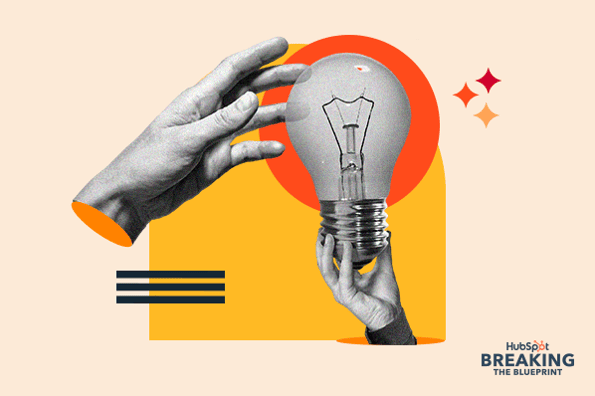
Native entrepreneurship typically occupies two worlds. Aspiring Indigenous enterprise house owners navigate historic limitations to conventional financing and development — whereas constructing culturally knowledgeable, sustainable ventures.
This difficult local weather hasn’t stopped these entrepreneurs from getting into almost each business possible to make an Indigenous imprint on the world whereas supporting themselves and their communities.
Some Native enterprise house owners construct on cultural touchstones like tribal artwork and tales to launch design studios and artwork retailers. Others tackle long-time systemic hurdles to credit score by entering into the monetary sector, bringing an Indigenous perspective to the difficulty that usually proves essential in addressing it. Nonetheless, others make waves in industries the place Native participation registers only a fraction of a share level, resembling in engineering and architectural design.
Inspiring Indigenous and Native Entrepreneurs to Know
By inspecting the tales and recommendation of those highly effective voices in Indian Nation enterprise, we are able to gentle a path for much more Indigenous entrepreneurs to observe after — and proceed an ever-improving cycle of breaking freed from poverty and systemic discrimination. Let’s dive into these unbelievable leaders’ tales.
Chad Johnson (Cherokee,) The Akana Group
Agriculture is a staple enterprise for a lot of Native Individuals, whose households have farmed reservation lands for generations. Nevertheless, gear usually proves a significant hurdle even when working personal lands, particularly when Native farmers wrestle to safe startup or enterprise capital, in response to a U.S. Treasury’s Group Improvement Monetary Establishments Fund report.
Enter Chad Johnson’s Akana Group, which companions with gear sellers like John Deere to foster relationships with tribal producers. Akana typically secures reductions, supply, and upkeep for Indigenous purchasers to assist producers totally use their land.
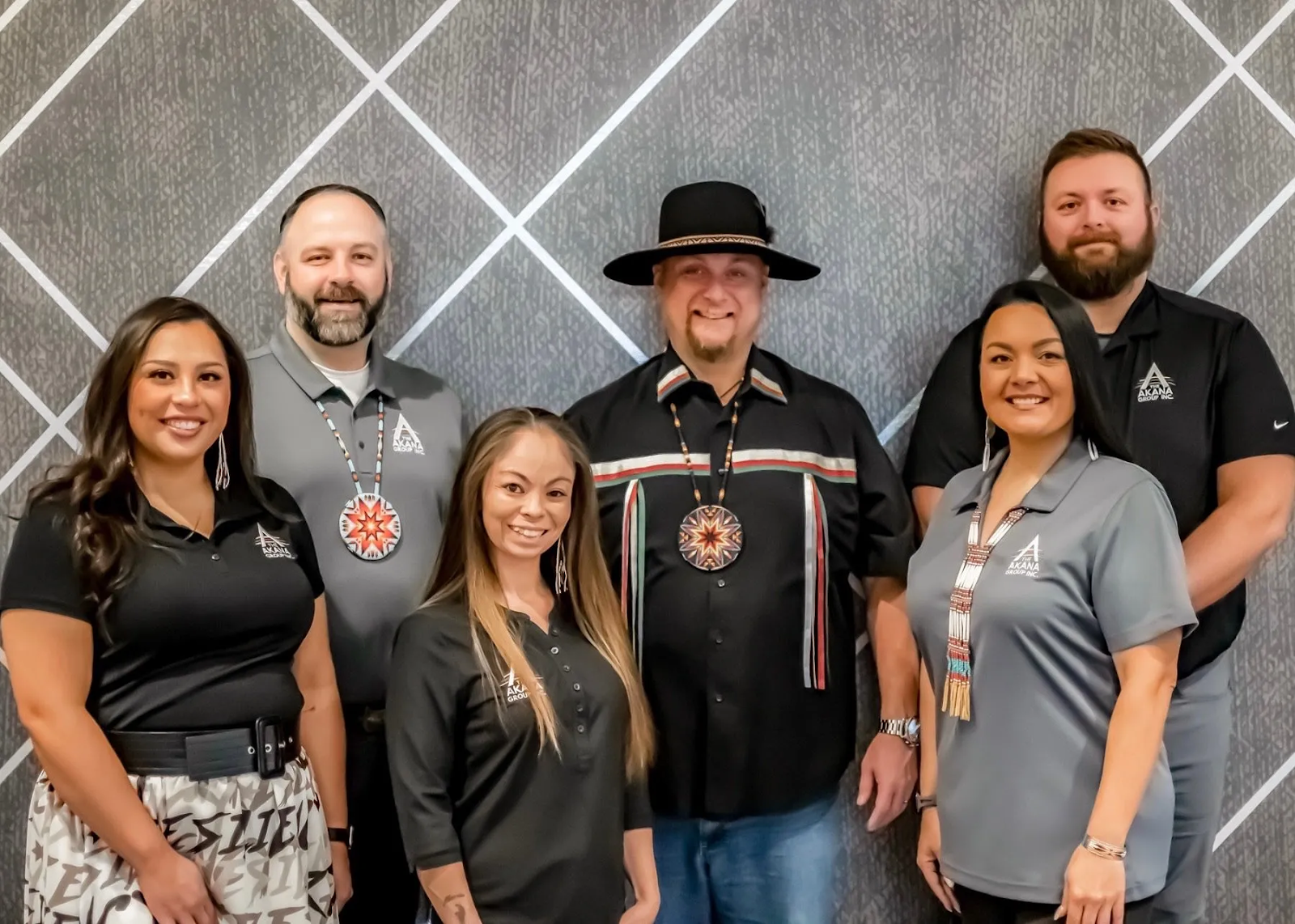
“It’s empowering for Native farmers to have extra alternatives round their land utilization,” Johnson says. “It’s about offering them what they want for a long-term development technique.”
Whereas the Akana Group has since gone nationwide, Johnson’s aspirations don’t cease at U.S. borders. His background drives him to ascertain partnerships with different Indigenous individuals throughout the globe.
“As Native companies, with these new alternatives in entrance of us, we have now to essentially take into account: What are we seeking to do? How are we seeking to develop?” Johnson says. “We now have to have the extra difficult conversations of how we are able to actually work collectively.”
Johnson not too long ago served as a delegate for the First Nations Commerce Mission, which noticed a bunch of Native enterprise figures go to Australia to debate commerce, partnerships, and training with Indigenous communities there.
The First Nations Commerce Mission builds on the Native custom of bartering and partnering to realize higher issues for all events concerned, Johnson says.
“Commerce is in our blood. Indigenous individuals have been merchants because the starting,” Johnson says. “This mission solely reinforces that.”
Sheila Cummings (Lumbee,) Cummings Aerospace
Cummings Aerospace founder, CEO and president Sheila Cummings has plans in Australia, too. The Lumbee citizen not too long ago introduced a partnership to develop protection options alongside Australian firm Criterion Options.
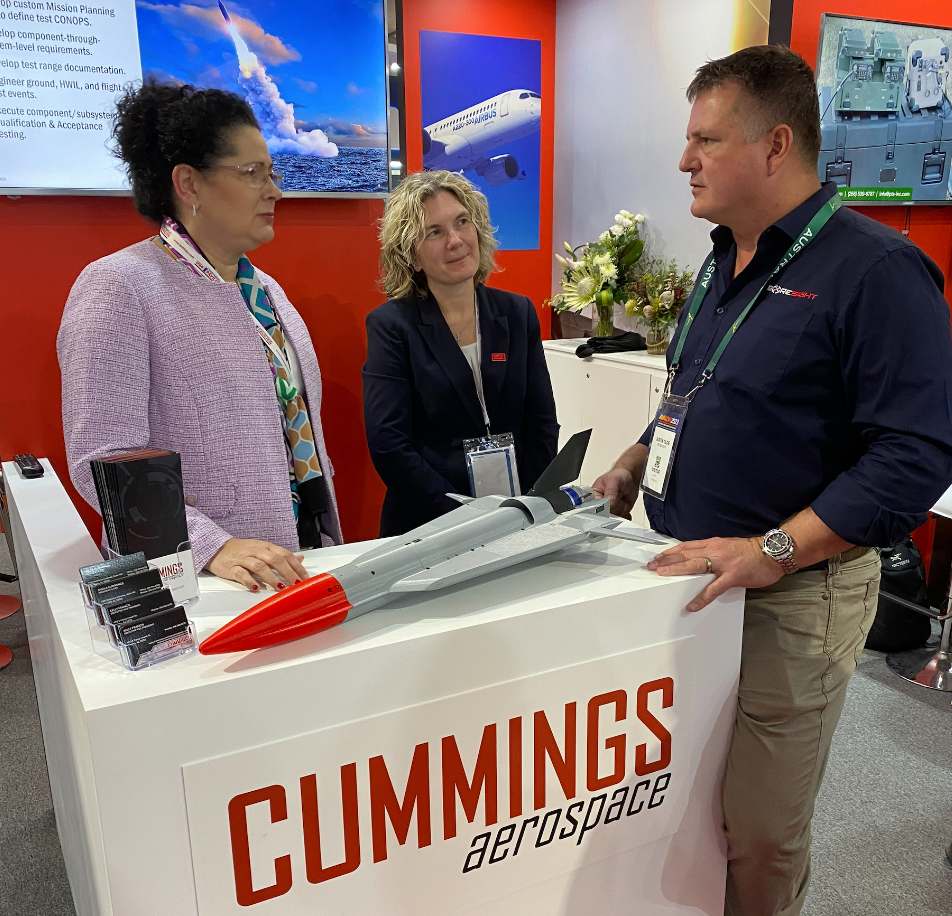
That’s on a regular basis work for Cummings herself, who took an intense curiosity in science and know-how in her teenage years, she says. Regardless of an absence of accessible science courses in her early training and treasured little current Native illustration within the aerospace business, Cummings fought exhausting to realize her objective: making objects fly.
“I encountered many academics and advisers who weren’t very supportive,” Cummings says. “I wished to succeed in order that, if nothing else, I may show them improper.”
That defiant spark gave strategy to a want to open her personal small enterprise after Cummings landed in Huntsville, Alabama, the place she discovered a supportive group to construct upon. Cummings says assist made her really feel comfy taking a danger in launching Cummings Aerospace in 2009.
It was a break into an business the place Native Individuals made up simply 0.3 % of workers and house owners, in response to information from the Nationwide Motion Council on Minorities in Engineering. Cummings says the obstacles to her ascent solely made her try tougher.
“I take advantage of them to gasoline my ardour,” Cummings says. “All of us encounter challenges, it doesn’t matter what your profession or journey is. There’s all the time challenges. It’s greatest to make the most of these obstacles to enhance as an individual, as a pacesetter, and as a enterprise proprietor.”
Valerie Crimson-Horse Mohl (Cherokee,) Identified Holdings
Lengthy-time financier Valerie Crimson-Horse Mohl understands these challenges properly, main her to enter the monetary sector and located the primary Native-owned funding financial institution on Wall Avenue in 1998. Since then, Crimson-Horse Mohl has helped discover capital and assist for Native entrepreneurs, culminating within the founding of mixture funding fund, asset administration agency, and institutional data middle Identified Holdings in late 2022.
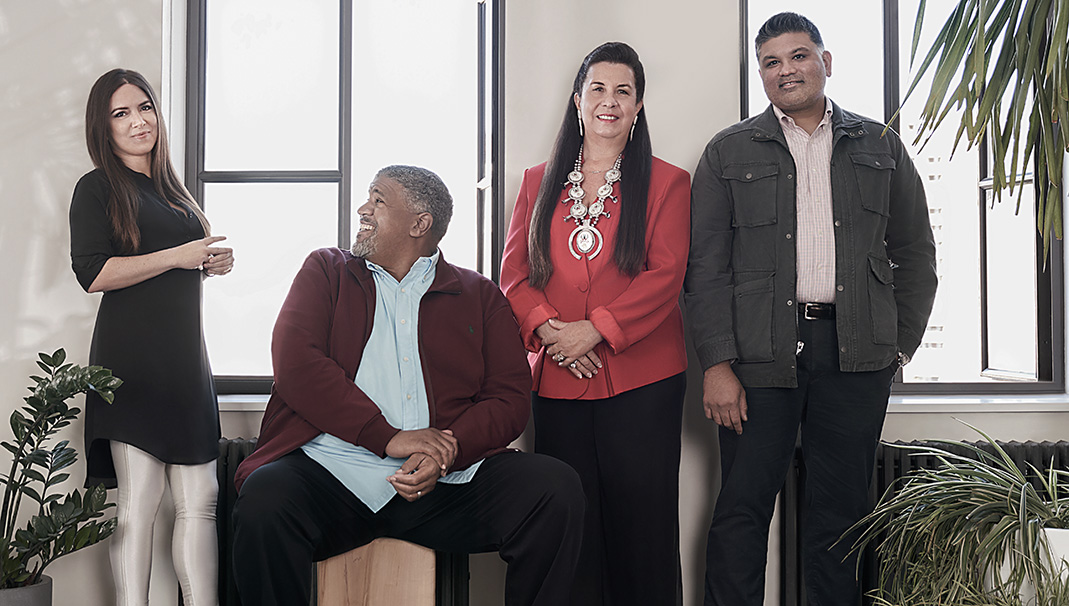
Crimson-Horse Mohl says Identified Holdings goals to fix disparities in racial wealth by offering enterprise and monetary administration assist for house owners and executives, emphasizing supporting entrepreneurs of shade.
“It’s about supporting these companies as they develop,” Crimson-Horse Mohl says. “When you concentrate on Native founders and entrepreneurs, they cope with this cliff that they fall off of after they make it previous the small enterprise stage – they don’t have that very same assist in attending to the ‘endgame’ the place they go public or are acquired.”
Bridging that hole has turn out to be a “ardour” for the Cherokee citizen, who sees the assist as a strategy to break freed from a cycle of poverty afflicting BIPOC communities.
“I moved into the philanthropy area to attempt to determine extra sustainable options I’d deliver again to my group,” Crimson-Horse Mohl says. “To me, it’s a fruits of all my work, all my years, and I’m grateful God noticed match to place me within the paths of my different founders at Identified Holdings.”
Connor Alexander (Cherokee,) Coyote and Crow
Native views in fantasy ceaselessly discover themselves employed on behalf of the villains – savage orcs roam in tribes, or mystic druids keep an exaggerated relationship with their setting. Furthermore, the exploding tabletop roleplaying sport business typically employs colonialist frameworks for his or her primary gameplay, leaning on Eurocentric tropes and beliefs to create their tales.
Sport designer Connor Alexander needs to discover new horizons for Indigenous tales, slightly than retreading previous stereotypes and frameworks. To that finish, he and his group created Coyote and Crow, a tabletop roleplaying sport that imagines what Native America would possibly appear like if contact with Europe by no means occurred (together with a dose of magic.)
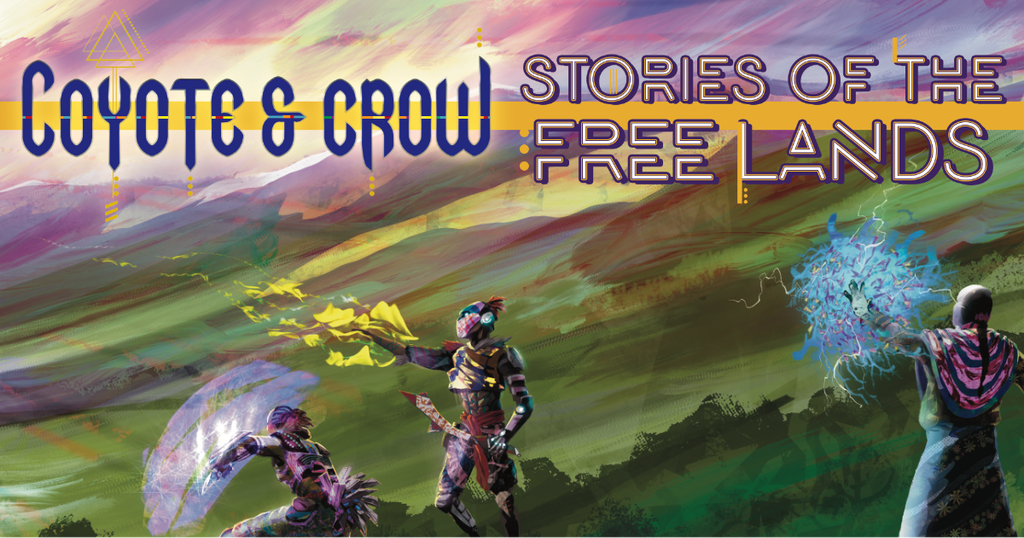
Coyote and Crow created a splash with an immensely in style, million-dollar Kickstarter marketing campaign, paving the best way for Alexander and his group to broaden the sport with extra books, adventures, mini-games, and equipment. The sport even options its personal fictional language and an evolving encyclopedia.
“We knew we have been tapping into one thing uncommon earlier than we launched – but it surely actually threw us to learn how many individuals the sport spoke to,” Alexander says. “The keenness is simply overwhelming.”
The sport is Alexander’s tackle Native optimism, and a push into telling Native tales from a Native perspective, slightly than counting on consultants or researchers to offer a extra distant place.
Gaming is an overwhelmingly white business, Alexander explains – which makes pulling collectively acceptable assist and illustration for Indigenous individuals a vital step towards enhancing issues.
“I feel we’ve all gotten so used to representational desk scraps from mass media that when one thing completely different comes alongside, it feels actually contemporary and very important,” Alexander says. “My hope is that Coyote and Crow is an element of a bigger second, a media rebirth.”
Elizabeth Perez (North Fork Rancheria Mono Indians,) GC Inexperienced
Elizabeth Perez is the award-winning founding father of GC Inexperienced, a clear vitality session and normal contracting firm. That’s a number of awards: Minority Veteran Owned Agency of the 12 months by the Nationwide Minority Provider Improvement Council, a Champion of Local weather Change and Clear Vitality Veteran award from then-president Barack Obama, and recognition from her personal tribe.
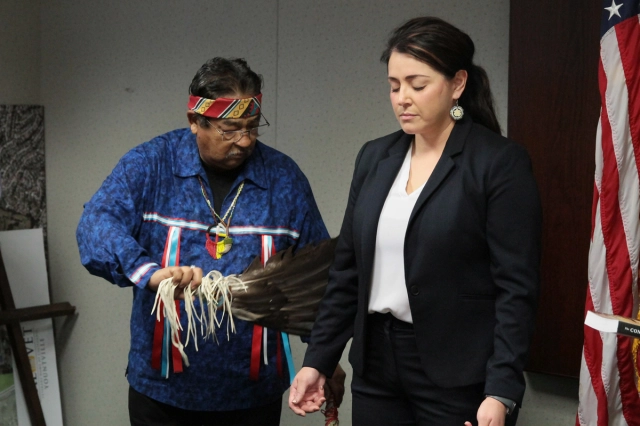
For Perez, it’s that final award from her tribe which means essentially the most to her. Perez’ tribe, the North Fork Rancheria Mono Indians in California, have confronted wildfire disasters in recent times, together with one which claimed 28 houses.
“One factor about a number of tribes is that we’re entrance and middle with regards to local weather,” Perez says. “We have to be. We’re coping with the results.”
Perez describes GC Inexperienced, and her local weather change work, as “going to the physician” by designing more healthy, extra energy-efficient buildings placing much less pressure on their surrounding setting. The corporate additionally consults with California utility packages on vitality effectivity, assists native companies in making use of for local weather resilience incentives, and helps tribes construct and keep microgrids.
The objective, Perez says, is to deliver tribes collectively in selling vitality resilience and tribal sovereignty over their vitality use. She hopes to prepare a gathering between tribes in California’s Central Valley, to deliver management underneath one roof to cooperate on constructing environmentally environment friendly options.
Tribes should take the lead, Perez says, and that features enterprise house owners like herself, serving to to mix local weather resilience and financial alternatives.
“We’ve received to get to our cultural methods to battle local weather change and get forward of it. We will present energy for our personal, which creates financial stability for individuals,” Perez says. “I imagine in seeing a problem — even like these wildfires — and turning it into a possibility. I’m making an attempt to try this now.”
[ad_2]
Source_link

![Download Now: Free State of Marketing Report [Updated for 2023]](https://no-cache.hubspot.com/cta/default/53/b0f73a5e-16e4-41fd-9511-8564efc560a7.png)






